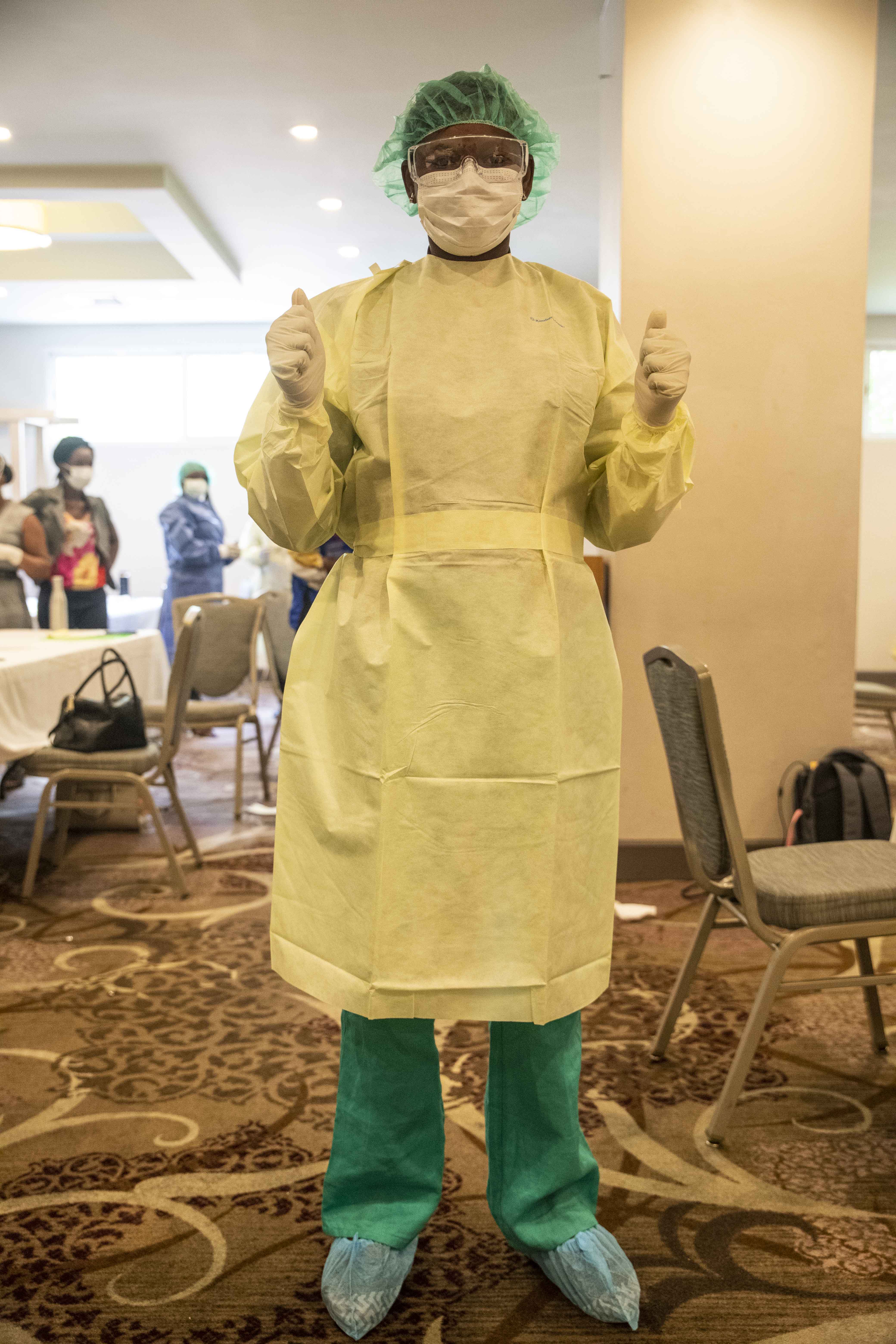PORT AU PRINCE, Haiti - Emergency services have just been reopened after the decontamination at the Immaculée Conception Hospital (HIC) of Port-de-Paix, in the North West of Haiti. As of July 19th, 2020 the latest data from the national Department of Epidemiology, Laboratories and Research (DELR), report 7100 confirmed cases and 151 deaths caused by the COVID-19 pandemic.
The health professionals are poorly equipped to protect themselves against the pandemic, while dealing with stress on a daily basis. One of the few hospital centers of the region, the HIC, was closed for 27 days after one patient and two providers had been tested positive with Covid-19.
UNFPA help Haiti fight COVID-19
About fifty healthcare partner institutions of UNFPA Haiti, among them the HIC, have received 2570 medical kits for the maternity wards, 1300 hygiene kits and 400 solar lamps to fight COVID-19. These kits include boots, bonnets, surgical masks, disposable gloves, and protection glasses for deliveries, cesarean and other surgical interventions.
“It has been with a great feeling of relief that we have welcomed the delivery of this batch of personal protection equipment”, says Dr. Saely Polycarpe, the medical Director of the Immaculée Conception Hospital of Port-de-Paix.
Since the beginning of the crisis, a lot of healthcare providers were leaving the healthcare institutions because of the high demand of PPE, this was causing the services to stop in several places throughout the national territory. UNFPA Haiti made sure, throughout 6 provinces, that sexual and reproductive, maternal and neonatal health services continue during the COVID-19 pandemic.
The Ministry of Status of Women and Women's Rights (MCFDF) in collaboration with UNFPA Haiti launched on July 7, 2020, the implementation of the action plan against Covid-19. This campaign aims at increasing awareness against Covid-19 and its impacts on women and girls.
2300 buckets with taps, 500 hygienic kits and dry take-home rations kits and thousands of masks were distributed throughout 19 town halls held in public markets in partnership with several local women's organizations.

Pregnant women first
“In the past, I was really afraid because of the Covid-19”, explains Frantzia Noël, 35 years old, who is 4 months pregnant. My fear has gradually disappeared after talking to a midwife that came to my neighborhood to show me how to adopt the prevention measures before coming to the hospital”, she added.
With an estimate of 75.000 births expected in Haiti between April and June, pregnant women and new mothers are the main beneficiaries of these materials. Based on fear of Covid-19 and services discontinuity, the anxiety was growing every day in the Saint Jean-Baptiste Hospital of Anse d’Hainault.
The number of patients had diminished by 25 % in some maternalities, this could negatively affect the efforts of encouraging women to give birth in healthcare institutions- (only 39 % of women give birth in Healthcare institutions according to the National survey EMMUS VI). This was the case in the Saint Joseph Health Center des Abricots, in Grand’Anse (South Western of Haiti), and in the Health Center or Arniquet, in the South of Haiti.
Resumption of services
The Saint-Antoine Hospital of Jérémie, in Grand’Anse (South West of Haiti), is one of the institutions which have received PPE. Recently, the healthcare professionals practically left because of the lack of protection equipment.
The midwife’s awareness and community commitment have motivated pregnant women to progressively come back to these centers for antenatal consultations with the confidence of a safe delivery.
“We organize meeting points with 2 or 3 women to respect the physical distance in their communities so they are encouraged to come to the hospital”, says Christiane Bernard, midwife-nurse in the Saint-Joseph Healthcare of Abricots, and Beatrice Lotin, nurse-midwife in charge of the delivery at the Healthcare of Arniquet.



